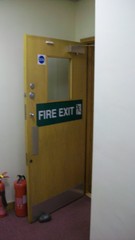 Employment Tribunals (ETs) are not entitled to substitute their own view of the gravity of an employee’s misconduct for that of a reasonable employer. In one case, however, an ET fell into precisely that trap when it found that two distribution centre workers’ breaches of their employer’s fire safety policy were not serious.
Employment Tribunals (ETs) are not entitled to substitute their own view of the gravity of an employee’s misconduct for that of a reasonable employer. In one case, however, an ET fell into precisely that trap when it found that two distribution centre workers’ breaches of their employer’s fire safety policy were not serious.
In order to be certain as to exactly who was on the premises in the event of a fire, the employer required all of its staff to sign a fire sheet on arrival and departure. The more senior of the two workers had, on a daily basis and for several months, signed in and out for the other. Following a disciplinary process, gross misconduct findings were made against both men and they were summarily dismissed.
After the workers launched proceedings, an ET found that their breaches of their employer’s health and safety policy were not serious and, by a majority, upheld their unfair dismissal claims. The fire sheet could not be said to have been falsified in that there was no suggestion that the more junior worker was not in the building when his colleague signed him in, or that he was still in the building when he was signed out. There had been no furtiveness on either man’s part and their sole fault was that one of them signed the sheet when the other was not standing next to him.
In upholding the employer’s appeal against that decision, the Employment Appeal Tribunal (EAT) found that the ET had substituted its views on what was important for the purpose of the fire sheet policy and what amounted to a serious breach. The ET had repeatedly focused not on the employer’s assessment of the seriousness of the workers’ conduct but on its own opinions.
The ET had misunderstood important parts of the evidence and had also erred in finding an unreasonable inconsistency between the workers’ treatment and that of another who kept his job after signing in for a colleague on a single occasion. In the circumstances, the case was remitted to a fresh ET for rehearing.



